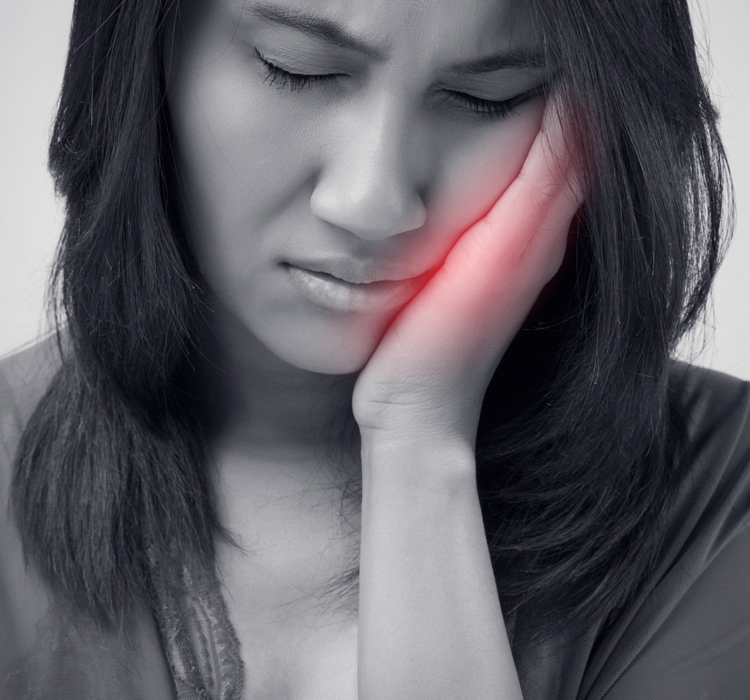Dental Emergency
Accidents Happen!
So you knocked-out, busted-in, or smashed up that beautiful smile of yours. Or maybe, you have a toothache that is unbearable. Whatever may be the kind of dental emergency, you don’t need to suffer and wait. Call BDC immediately for an emergency appointment.
Dental problems that require immediate attention
If you break or knock out a tooth, acting quickly gives us the best possible chance to save your tooth. Other dental problems, like serious infections, may also need emergency care. Emergency appointments are available and our help line is open 24/7.
If you experience any of these dental problems, call us immediately for an emergency appointment:
- Knocked-out or loose tooth after an injury
- A cracked or broken tooth that causes pain
- A painful, throbbing toothache that radiates to the jaw, ear, and neck
- A toothache with a fever and/or swollen lymph nodes in your neck
No fun, but not an emergency
Missing fillings, chipped teeth, and mild toothaches can be scary and painful. In these cases, give us a call and we’ll advise you if you need an emergency visit or not.
Urgent, but probably not an emergency
- Lost fillings or crowns, unless they cause severe pain
- Chipped, cracked or broken teeth, unless the nerve is exposed and is painful
- Mild toothache
- Food stuck between your teeth
- Broken retainer or popped wire on braces

In these cases, give us a call and we’ll advise you if you need an emergency visit or not.
- Knocked-Out Tooth
- Loose Tooth, Alignment Issue
- Chipped, Cracked, or Fractured Teeth
- Tissue Injury and Facial Pain
- Other Dental Emergencies
- Problems with Temporary Restoration
Knocked-Out Tooth
A knocked-out tooth is a dental emergency that requires urgent attention. If the appropriate emergency steps are followed immediately after the tooth has been knocked out, the chances are very good that the tooth can be re-inserted and preserved by a dentist.
- Pick up the tooth by the top (crown) of the tooth. Do not touch the root(s) of the tooth.
- Rinse the tooth off very gently to ensure that it’s clean. Do not scrub the tooth or remove any tissue attached to it. Be sure to place a towel or washcloth in the sink so that the tooth does not go down the drain.
- If you can, gently place the tooth back into the socket. Hold it gently in place while trying to bite down.
- If you can’t place the tooth back in the socket, put the tooth in a small container or in a cup of milk. Note that the latter is preferable.
- Call your dentist immediately since getting to the dentist quickly with your tooth – in addition to following the steps above – is critical for saving the knocked-out tooth.
- The longer you wait to re-implant the tooth in its socket, the less chance you have of the tooth “taking” and remaining viable.
Loose Tooth, Tooth Out of Alignment
If you have a tooth that is loose or out of alignment, you should call your dentist for an emergency appointment right away. In the meantime, you can try to put the tooth back in its original position using your finger with very light pressure. Do not try and force it. You can bite down to keep the tooth from moving. Your dentist may want to splint the tooth to the adjacent teeth (the teeth on each side) to keep it stabilized.
Chipped, Cracked, or Fractured Teeth
If a tooth is chipped and doesn’t hurt, this usually does not constitute a dental emergency and you can wait a few days to see a dentist. However, it is important to be careful while chewing so as not to chip it more. Your dentist may simply be able to smooth the chip out, or add some composite filling material to repair the tooth.
A cracked or fractured tooth is a serious issue constituting a dental emergency. Fractured or cracked teeth usually suggest that damage has occurred to the inside of the tooth as well as to the outside. Severe fractures are so extreme that the tooth cannot be saved. If you suffer a fractured tooth, call your dentist immediately for an emergency appointment and follow these steps:
- Clean your mouth out by gently rinsing thoroughly with warm water.
- If the fracture is caused by facial trauma, apply a cold compress to the area to minimize any swelling.
- Take Paracetamol according to the packaging directions to alleviate pain.
- Never apply a painkiller to the gum because it can burn the gum tissue.
An X-ray will be needed in order for your dentist to properly diagnose the condition of your tooth. If the soft tissue inside of the tooth (the tooth pulp) is damaged, your tooth may need a root canal. If the pulp is not damaged, the tooth might only need a COMPOSITE tooth color filling or crown.
If the tooth cannot be saved, your dentist will inform you of the various alternatives for replacing missing teeth, such as implant-supported restorations and bridges.
Tissue Injury and Facial Pain
Any type of injury inside the mouth, such as puncture wounds, lacerations and tears to the lips, cheeks, mouth and tongue, are considered tissue injuries and a dental emergency. If you experience any type of tissue injury, it is important to clean the area immediately with warm water. If the bleeding is coming from the tongue, gently pull the tongue forward and place pressure on the wound using gauze.
To alleviate any type of facial pain associated with tissue injury, you can take Paracetamol as directed on the packaging label.
Other Dental Emergencies
Any dental problem that requires immediate treatment in order to save a tooth, stop ongoing tissue bleeding, or alleviate severe pain is considered a dental emergency.
A severe infection or abscess in the mouth can be life-threatening and should be dealt with immediately. Your dentist might be able to perform the first stage of a root canal to open and drain the tooth and allow the abscess to drain.
Problems with Temporary Restorations
Having a temporary crown come off is not a dental emergency. However, it is important to put it back in place so that the tooth stays in its original position until you can see your dentist.
A temporary crown can easily be put back onto your tooth by placing Vaseline, toothpaste, Chapstick, or even a very small amount of denture adhesive into the temporary crown and placing it onto your tooth. To do this, put your crown on your tooth without anything and note how it fits into place. Once you are comfortable with the fit, apply adhesive into the temporary crown and place it properly on your tooth. Bite down firmly onto a dry washcloth, applying even pressure to the temporary. After a few minutes, clean off any excess adhesive you can see. However, this is just for the time-being and you should see your dentist within the next few days to have it properly re-cemented.
Smoothening a chipped tooth, re-cementing a crown that is not causing pain, and composite bonding to repair a tooth are not dental emergencies. Typically, such problems can be dealt with during your dentist’s regular clinic hours.
If you are not sure whether or not you are having a true dental emergency, answer the following questions:
- Are you bleeding from the mouth?
- Are you in severe pain?
- Do you have any loose teeth?
- Have you been hit in the face or mouth?
- Do you have any swelling in the mouth or facial area?
- Do you have any bulges, swelling or knots on your gums?
If you answered yes to any of these questions, you might be having a dental emergency and you should call your dentist immediately. It’s important to describe to your dentist exactly what has happened and what you are feeling.
If you experience extreme pain caused by hot or warm foods or beverages, try drinking ice water. It might relieve the pain. Sip on ice water and hold some in your mouth until you see the dentist.
If you are having sensitivity to cold or if it causes pain to breathe-in air, avoid cold foods and beverages. Breathe through your nose and call your dentist’s clinic.
If you experience pain in a tooth when biting down, it might indicate an abscess. This is an emergency and you should call your dentist’s clinic.
Many dental emergencies can be easily avoided by having routine check-ups with your dentist to ensure that your mouth and teeth are healthy, strong, and free from decay.
Wearing a mouth guard during sports activities will help to prevent teeth from being chipped, knocked out, or broken. Avoid chewing on ice and hard foods that may break or fracture your teeth. If you are planning to travel out of the country or leaving for an extended vacation, during which you may not have ready access to dental care, it is important to see your dentist for a routine check-up before you leave. Your dentist can make sure that you don’t have any loose crowns or teeth, decay close to the nerve of a tooth that could cause you pain or develop into an abscess, or other problems that could be easily fixed before becoming a dental emergency later.
Because a dental emergency can happen at any time and place, the best thing to do is to be prepared and not panic. Pack and keep with you a small dental first-aid kit containing the following:
- Small container with a lid
- Name and phone number of your dentist
- Paracetamol
- Gauze
- Handkerchief








